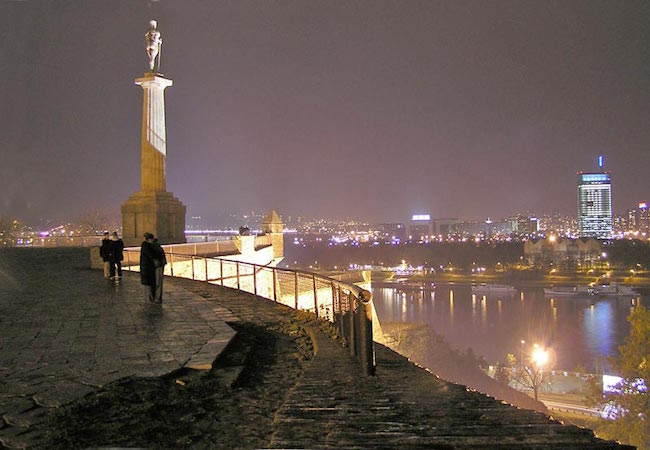Enlargement divides the Balkan countries and the European Union

By Richard Rousseau
On October 6th, the European Union’s 27 member states and the Western Balkans’ six members (Albania, Bosnia and Herzegovina, Kosovo, Northern Macedonia, Montenegro, and Serbia) met at Brdo Castle in Slovenia. These Balkan states are vying for Union membership. The EU’s door, however, is currently closed and is not about to be opened up. Nonetheless, the EU cannot afford to ignore the fate of its immediate neighbors.
The membership issue is not particularly new: The dialogue began in 2003 with the countries of the former Yugoslavia and Albania. However, it is moving at such a glacial pace that it is causing considerable frustration. The summit held in Slovenia was no exception.
In some ways, it was a return to the question of Union enlargement that arose following the fall of the Berlin Wall in 1989, as well as the democratization of Central and Eastern European countries. This debate pitted proponents of enlargement against those of deepening. In other words, should new members be admitted, or should the relations between the “historical” ones be strengthened? The EU has done both, though not without difficulty: it has expanded, and it has created the euro.
There are two contradictory demands, just as there were in the 1990s. Proponents of enlargement argue that the Balkan countries represent a risk zone on the European continent, both in terms of governance and geopolitics, with Chinese, Russian, and Turkish influences in the EU’s backyard. Ignoring these countries would be at the Brussels’s own peril.
Opponents of too rapid, or even any, enlargement argue that the EU of 27 is already unable to function effectively, and that adding five or six countries to the current structures would condemn the EU to impotence. Therefore, they want to overhaul the Unions operations before welcoming new members.
As in the 1990s, a combination of the two arguments is most likely, because failing to provide these politically and economically fragile states with a membership perspective will drive them into the arms of foreign powers. For example, a few days after the summit, Serbia’s prime minister praised Russia’s economic assistance and the historical links between the two countries. The 27 EU member states did include the word “enlargement” in their final declaration at their summit, but without providing a timetable. “You will be a part of the EU,” said European Commission President Ursula Von der Leyen. It is not a matter of if, but of when. However, this is far from sufficient, and the EU had reached into its pockets to offer a 30 billion euro funding package to a particularly vulnerable region of Europe.
But it’s not just about the money. There are several micro violent conflicts to be resolved in that region, including one between Serbia and Kosovo, which frequently threatens to devolve into an open confrontation, and another centered on minorities and identities between Northern Macedonia and Bulgaria.
Because of the fractured lines between the EU and the Balkan states, this summit left a lingering sense of unfinished business. But political logic is unavoidable: the Balkans, after all, are closer to Europe than Afghanistan and South Asia, which has captured so many people’s attention lately.
Richard Rousseau, Ph.D. is a specialist in international relations. Formerly professor and chair of political science departments at different universities in Canada, Georgia, Kazakhstan, Azerbaijan and the United Arab Emirates, he has authored over 800 academic, analytical and commentary articles. His research interests include the former Soviet Union, international security, International political economy and Globalization.




